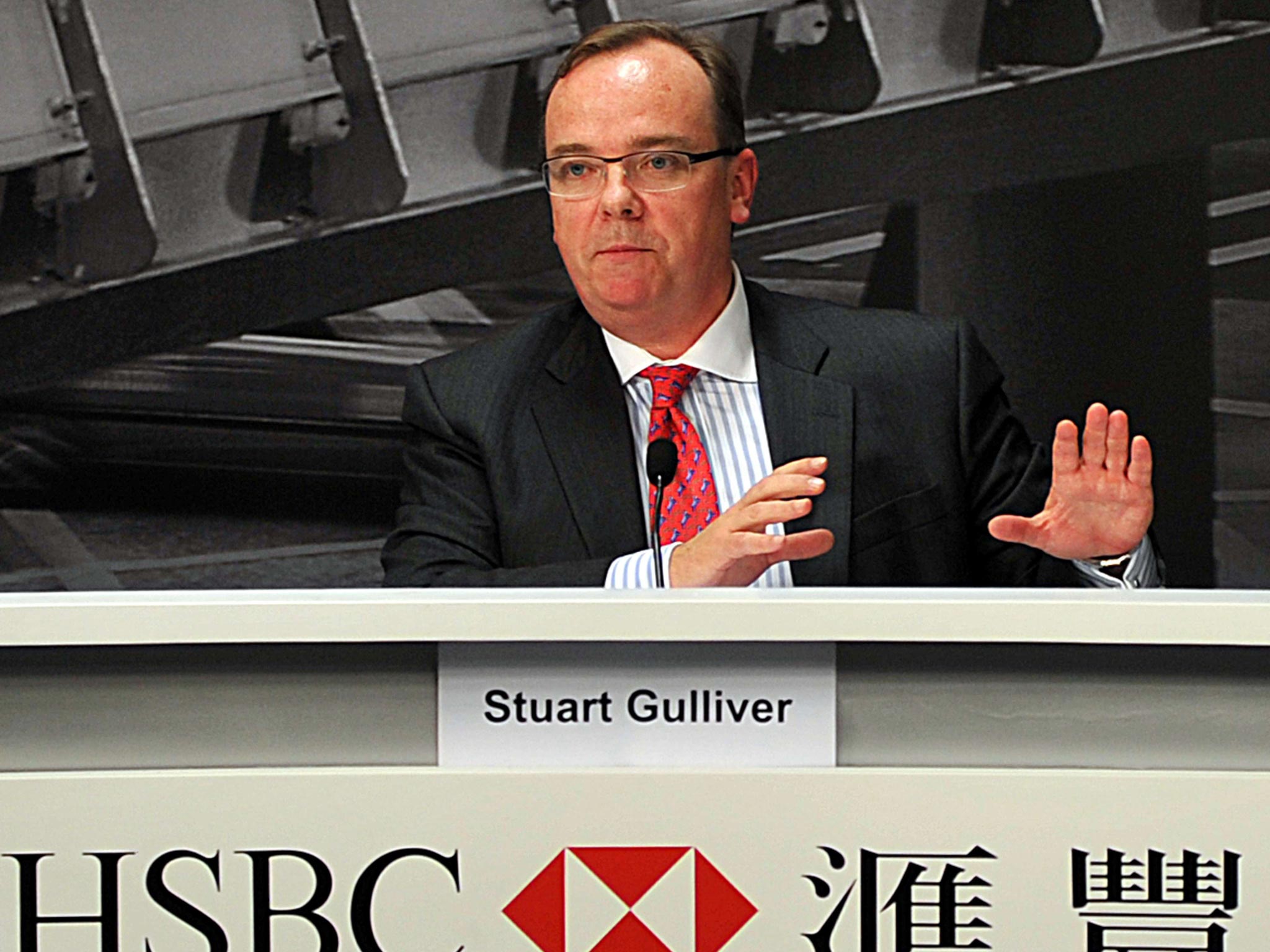HSBC Stuart Gulliver to get 70% pay rise - taking his salary to £4.2m a year

The boss of the biggest bank in the UK, HSBC, is to get a pay rise of nearly 70 per cent with extra allowances added to his salary meaning that he will get a minimum of £4.2m a year, up from £2.5m.
The move to increase this element of Stuart Gulliver’s “compensation” was interpreted as a way to get round a European Union cap on bonuses – restricting them to 200 per cent of salary -- and came as he predicted widespread closures of bank branches outside of cities. HSBC's annual report showed profits rose 9 per cent to £13.6bn in 2013.
Mr Gulliver said: “We had a compensation plan here that the shareholders liked but sadly because of the EU directive we've had to change. This isn't something we would have wanted to do … It's much more complicated.”
Pressure groups told The Guardian that banks were flouting the EU’s attempt to reign in the bonus culture in the industry.
A campaigner with the Robin Hood Tax group said: “HSBC haven't so much circumvented rules on bonuses as driven a coach and horses through them. The only way to rein in bankers’ remuneration is to make banks pay their fair share to society.”
And the general secretary of the TUC, Frances O'Grady, said: “It would be great if banks put the same effort into lending to small businesses and investing in infrastructure as they do to getting round EU rules on boardroom bonuses.”
Mr Gulliver also predicted the growth of internet banking would lead to closures of local branches.
“You won’t be offering a branch walk-in facility for what can be described as a banking facility because the footfall won’t be there. You will end up with a smaller number of branches than today, but you will still have branches,” he said, according to the Daily Mail. “They will be in different parts of the country to reflect demographic changes that have taken place.”
Caroline Abrahams, of Age UK, said: “Being able to access your cash and pay bills are essential services … The shrinking number of high street bank branches combined with the industry’s growing reliance on online services mean access has become increasingly difficult for many older people.”
Join our commenting forum
Join thought-provoking conversations, follow other Independent readers and see their replies
Comments